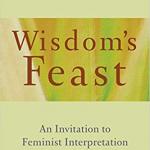Stephen G. Dempster
Micah
THOTC.
Grand Rapids: Eerdmans, 2017.
Available at Amazon.com
By Dr. Jill Firth
This commentary on Micah was written in Cameroon, where wealth and poverty are strongly juxtaposed, and injustice in the courts, corruption and a prosperity mindset mirrored the setting of Micah in the seventh century BC. Dempster was challenged as an affluent Westerner, and also concerned for the development of a social conscience in the growing evangelical church in Cameroon.
The introduction covers the Prophet and His Times, The Oracles and Their Structure, Authorship, Date and History of Interpretation, Structure, Composition, Theological Interpretation, Poetic Structure, Discourse, Text, and Micah’s Place in the Minor Prophets (The Twelve). The discussion interacts with a range of scholarship, and is well footnoted.
The commentary on the text engages structure, literary features, key words and expressions, and interpretation of Micah’s words then and now. Micah 6.1–8 is divided into three subunits, and Dempster draws out the poetic and rhetorical structure, showing intensification in the three questions of verses 6b–7 (calves, rivers of oil, my firstborn), echoed in the three answers of escalating importance in 6.8b (act justly, love kindness, walk humbly with God). Wordplays in the Hebrew are elucidated, and careful attention to key words and expressions with attention to the Hebrew and other texts. The collocation of love and kindness is found only in Micah 6.8 in the OT, though it occurs five times in the Dead Sea Scrolls. ‘One usually does kindness’ in the OT. ‘Practicing justice is something that one does, but loving ḥesed is something that one is; and being the latter will surely result in the former.’ Dempster concludes this section: ‘The requirements of God in 6:8 do not go against the grain of human nature but contain the most fundamental insights of what it means to be human. Human beings flourish when they seek justice, love ḥesed, and walk with God.’
Alongside the commentary, Dempster includes theological reflection in three chapters, ‘Theological Themes of Micah’ (Micah’s Vision of God, Divine Name and Israelite Credo, God and the Nations, Justice, Land, Temple, Messiah, Worship, True and False Prophecy, Remnant); ‘Micah’s Contribution to Biblical Theology’; and ‘Micah’s Relevance to Present-Day Theological Issues’ (Doctrine of God, Modern Ministry and the Role of a Spiritual Leader, Cheap Grace, Justice, Idolatry, Covetousness and Injustice, and Peace).
‘Micah’s Relevance to Present-Day Theological Issues’ raises the importance of justice and of righting wrongs, which can be overlooked in our current social climate which emphasises toleration, and Old Testament texts can be rejected as ‘broken’ or ‘the dark side of Scripture’. Prophets in Micah’s time focused on election and blessing and resisted the idea that their actions were accountable to God. Injustice, idolatry and coveting are linked, bringing about danger and oppression to the weak and defenceless.
This lively commentary will help readers and preachers to grasp the text of Micah, and to engage with its themes in their own lives. Its compact presentation, coupled with careful scholarship, makes it an ideal choice for busy pastors and students. There is a Bibliography, an Index of Modern Authors, an Index of Subjects, and an Index of Scripture and Ancient Sources.
Jill Firth is a Lecturer in Hebrew and Old Testament at Ridley College in Melbourne. Her research is in Psalms and Jeremiah.












